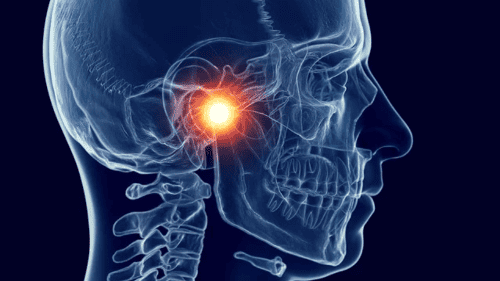
November is TMJ Awareness Month, a time to shed light on one of the most commonly overlooked sources of jaw pain and discomfort. If you’ve ever experienced jaw pain, clicking, or headaches that seem to start near your ears, your TMJ could be the culprit.
What Is TMJ?
The temporomandibular joints are the small, complex hinges that connect your jawbone to your skull and are responsible for everyday movements like talking, chewing, and yawning. Because they’re constantly in use, they’re also prone to stress and dysfunction.
Common Symptoms of TMJ Disorders
TMJ disorders (often called TMD) can range from mild discomfort to chronic pain that affects your daily life. Common signs include:
• Jaw pain or tenderness
• Popping, clicking, or grinding noises when you open or close your mouth
• Difficulty chewing or limited jaw movement
• Headaches, earaches, or facial pain
• Jaw locking (feeling like your mouth gets stuck open or closed)
What Causes TMJ Problems?
TMJ disorders can develop from a combination of factors:
• Teeth grinding or clenching (bruxism)
• Stress or tension in the jaw muscles
• Bite misalignment or missing teeth
• Injury or arthritis in the joint
Sometimes, symptoms come and go, but persistent pain or clicking shouldn’t be ignored.
How Your Periodontist Can Help
Many people are surprised to learn that periodontists can play a key role in identifying and managing TMJ-related issues. Because we specialize in the health and function of your gums, bite, and supporting bone structure, we can help pinpoint whether your symptoms are linked to jaw alignment, teeth grinding, or gum inflammation.
Our approach may include:
• A thorough bite and joint evaluation
• Digital imaging to assess the jaw structure
• Custom night guards or occlusal splints to protect your teeth and relieve joint strain
• Collaboration with your dentist or physical therapist for comprehensive care
By addressing underlying causes, not just symptoms, we help protect your oral health and improve your overall comfort.
Don’t Ignore Jaw Pain
TMJ pain can affect your ability to eat, speak, and enjoy life comfortably. If you’re experiencing jaw discomfort, clicking, or headaches that haven’t gone away, it’s important to get evaluated early. Relief and better function are possible with the right care.
This TMJ Awareness Month, take a moment to listen to what your jaw might be telling you, and schedule a consultation to protect your smile and comfort for years to come.

